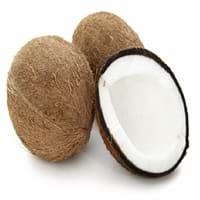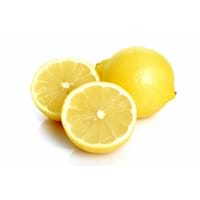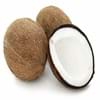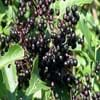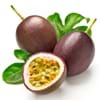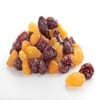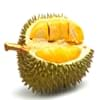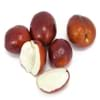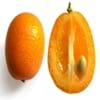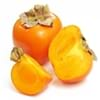Health Benefits
Acidity treatment, Acts as natural antibiotic, Anti-oxidant properties, Aphonia treatment
Arthritis treatment, Asthma treatment, Cancer prevention, Kidney stone treatment, Prevents constipation, Purging blood, Treatment of rheumatism
General Benefits
Anti-inflammatory properties, Body hydration, Boosts immune system, Controls blood sugar levels, Digestive aid, Fights against infections, Flu treatment, Healing of wounds, Helps in weight loss, Maintains healthy cholesterol level
Boosts immune system, Cures headache, Cures fever, Digestive aid, Flu treatment, Maintains healthy cholesterol level, Treatment of common cold
Skin Benefits
Anti-aging benefits, Heals sunburn, Hydrates skin, Reduces wrinkles, Skin rejuvenation, Skin revitalization, Treatment of skin diseases
Heals sunburn, Reduces wrinkles, Skin rejuvenation, Treatment of acne, Treatment of skin diseases
Hair Benefits
Promotes longer and healthier hair, Regulates hair growth, Rejuvenates scalp, Shiny hair, Treatment of dandruff
Prevents hair loss, Treatment of dandruff
Allergy Symptoms
Abdominal pains, Breathing difficulty, Itching in tongue and other parts of mouth, Nasal congestion, Nausea, Runny nose, Vomiting
Eczema, Hives, Inflammation, Itching, Skin rash, Swelling
Side Effects
Allergic reaction, Indigestion, Weight gain
Diuretic effects, Heart burn, Tooth decay, Chances of sunburn
Best Time to Eat
Along with meal, Best if taken as a breakfast (or empty stomach), As a snack in the late afternoon, Morning time (before lunch)
Along with meal, Best to drink lemon water on an empty stomach., Don't consume at night and before bed
Vitamin B5 (Pantothenic Acid)
Vitamin C (Ascorbic Acid)
Vitamin K (Phyllochinone)
Phytosterol
Not Available
Calories in Fresh Fruit with Peel
Not Available
Not Available
Calories in Fresh Fruit without Peel
Calories in Frozen Form
Not Available
Type
Tree fruit, Tropical
Citrus, Tree fruit
Season
All seasons
All seasons
Varieties
Tall Varieties- West Coast Tall, Laccadiv Micro, Andaman Ordinary, Fiji, Kappadam, San Ramon, Philippines, Spicate, and Pratap. Dwarf Varieties- Chowghat Orange Dwarf (COD) and Chowghat Green Dwarf (CGD)
Avalon Lemon, Bears Lemon, Buddha's Hand, Bush Lemon, Citron, Eureka Lemon, Dorshapo Lemon, Finger Citron and Fino Citron
Color
Brown, Green
Yellow, Yellowish-orange
Inside Color
White
Yellow
Taste
Juicy, Sweetish
Sour
Origin
America, India
China, India
Soil Type
Clay, Sand
Well-drained
Climatic Conditions
Hot, Humid
Hot, Sunny
Facts about
- Burning coconut's husk helps repel mosquitoes.
- Surveys say that falling coconut kills hundreds every year.
- Coconut water is used as a substitute Blood Plasma & is called "father of modern tissue culture science".
- Oil extracted from lemon peels is used for fingerboard of guitars.
- During Renaissance, ladies used lemons to redden their lips.
- Aroms of lemon decreases the level of stress hormones.
Top Producer
Indonesia
China
Other Countries
Brazil, India, Philippines, Sri Lanka
Argentina, Brazil, India, Iran, Italy, Mexico, Spain, Turkey, United States of America
Top Importer
United States of America
United States of America
Top Exporter
Philippines
Mexico
Botanical Name
Cocos nucifera
Citrus limon
Synonym
Not Available
Not Available
Subkingdom
Tracheobionta
Tracheobionta
Division
Magnoliophyta
Magnoliophyta
Class
Liliopsida
Magnoliopsida
Subclass
Arecidae
Rosidae
Order
Arecales
Sapindales
Family
Arecaceae
Rutaceae
Species
C. nucifera
C. limon
Generic Group
Arecaceae
Citrus fruit
Difference Between Coconut and Lemon
We might think that Coconut and Lemon are similar with respect to nutritional value and health benefits. But the nutrient content of both fruits is different. Coconut and Lemon Facts such as their taste, shape, color, and size are also distinct. The difference between Coconut and Lemon is explained here.
The amount of calories in 100 gm of fresh Coconut and Lemon with peel is Not Available and Not Available and the amount of calories without peel is 354.00 kcal and 29.00 kcal respectively. Thus, Coconut and Lemon belong to High Calorie Fruits and Low Calorie Fruits category.These fruits might or might not differ with respect to their scientific classification. The order of Coconut and Lemon is Arecales and Sapindales respectively. Coconut belongs to Arecaceae family and Lemon belongs to Rutaceae family. Coconut belongs to Cocos genus of C. nucifera species and Lemon belongs to Citrus genus of C. limon species. Beings plants, both fruits belong to Plantae Kingdom.
